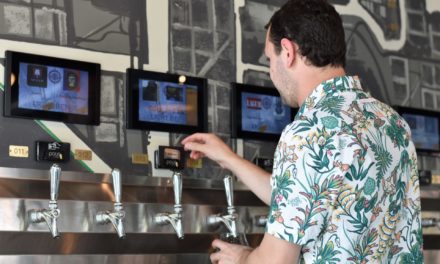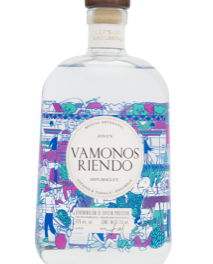Between the horrifying effects of the pandemic on the broader economy and the structure of our society at every level, alcohol beverage producers could be forgiven for not keeping up with the minutiae of Congressional legislation. First and foremost on the minds of many is simply moving their product and keeping their business going.
According to a study from WineAmerica that surveyed 10 percent of the country’s wineries, the negative financial impact on them in March 2020 alone was $400 million. An estimated $700 million worth of sales evaporated for craft distillers due to the pandemic, according to a study from the Distilled Spirits Council published in August. The Brewers Association estimates craft breweries will register a 10 to 20 percent decline in sales this year.
The 116th United States Congress, which opened January 3, 2019, and will end January 3, 2021, has thus far enacted 158 public laws and no private laws. That’s at the federal level. But laws in all 50 states changed quite a bit as well, and for the alcohol industry, those often have a larger overall effect on bottom lines as the sale, distribution, and import of alcohol is considered to be the responsibility of local jurisdictions. Local municipalities are given authority to interpret and enforce federal, state, and local laws regarding the manufacture, sale and consumption of alcohol.
Following current rules and anticipating others—and gathering the resources to object to some and support others—is as essential to a brewer, winemaker, or distiller’s success as making a fantastic product. To make sense of the current issues facing producers during these challenging and unusual times, we tapped producers, experts, and legal minds all over the country.
Law: Craft Beverage Modernization and Tax Reform Act (CBMTRA)
Who It Affects: Distillers, winemakers*, brewers*
(*Depending on the product, federal law classifies cider makers as either brewers or winemakers.)
What It Does: Craft producers, many of whom depend on sales through in-person events and their onsite tasting rooms, are facing billions of dollars in lost sales because of the pandemic. While states have offered some measures of support (more on changing shipping laws and to-go sales below), many say CBMTRA is essential to their survival.
On September 9, there was an industry-wide day of action by the CBMTRA coalition, a group of beverage alcohol trade associations including the Distilled Spirits Council of the United States, Brewers Association, Beer Institute, American Craft Spirits Association, Wine Institute, WineAmerica, the United States Association of Cider Makers, and American Mead Makers Association.

“We’re doing our best to explain to members of Congress that, if it isn’t made permanent or extended, it will cripple or kill much of an industry.” —Bob Pease, Brewers Association
“Our nation’s craft distillers, winemakers, brewers, and cider makers have been among the hardest hit during COVID-19,” the CBMTRA Coalition declared in a statement. “Significantly increasing taxes on these small businesses even in normal circumstances would be devastating, but to do so during a pandemic would undoubtedly force many of them to close. Congress should give these businesses a fighting chance by passing the Craft Beverage Modernization and Tax Reform Act as soon as possible. Only then will they have the opportunity to recover from the harsh economic impacts of COVID-19 and be able to continue to support other vital industries in their communities.”
Day of Action participants were encouraged to call, tweet, and email their members of Congress, urging them to pass bipartisan legislation that would make permanent the reforms enacted in 2017 that aimed to create an equitable tax structure. The bill, which currently has 346 cosponsors in the House and 74 in the Senate, helps craft producers compete with large-scale producers by reducing the excise tax on the first 100,000 proof gallons for distillers from $13.50 to $2.70 per gallon, for example; federal excise tax for the vast majority of craft brewers has been reduced from $7 per barrel to $3.50 per barrel.
While the support is broad, many in the industry still see the legislation—set to expire at the end of 2020—as key to the success or failure of the entire craft industry.
“If you’re a brewery that puts out your beer in bottles or cans, you’re probably doing OK right now,” says Bob Pease, president and CEO of the Brewers Association. “But about 70 percent of the 8,300 small and independent breweries in the United States aren’t in that situation, and they’re fighting for lives. Those businesses rely on on-premise sales and are in trouble. We are in an existential crisis. We realize [CBMTRA] isn’t perhaps the number one issue Congress is facing right now, but we’re doing our best to explain to members of Congress that, if it isn’t made permanent or extended, it will cripple or kill much of an industry—and that beer alone employs 160,000 Americans, with 45,000 of those jobs being in the manufacturing sector.”
Law: To-Go Legislation
Who It Affects: Distillers, winemakers, brewers
What It Does: COVID-19 has transformed the manner in which alcohol can be sold. As restaurants struggle to survive the closures their states mandated (the National Restaurant Association estimates restaurants will lose $240 billion in 2020 because of the pandemic), the vast majority of the legislators made purchasing alcohol to-go easier.
Most states—at least 33 and the District of Columbia—have allowed for carryout cocktails, beer, and wine in some capacity during the pandemic. But regulations vary from state-to-state, and even within them. In Nevada, for example, regulations didn’t change statewide, but individual cities (Las Vegas and Reno) permitted cocktails to go.

“Statewide, craft distillers saw sales spike 12 percent, year over year, once the legislation was passed—after precipitous drops.” —Beck Harris, Catoctin Creek Distilling Co., and American Craft Spirits Association
Arizona let restaurants deliver alcohol via third-party delivery services; in Pennsylvania, only the hardest-hit restaurants (ones that lost 25 percent or more of sales) could sell cocktails for take-away.
Most consumers—about 75 to 80 percent of respondents from a poll conducted by the National Restaurant Association—want the regulations to be extended and clarified. So do members of the industry, including brewers and distillers who, for the first time, have also been able to sell their product for pickup or ship it within their state. In Kentucky, lawmakers now let all alcohol producers ship their products in-state, and Virginia is now letting distilleries hand-deliver spirits.
“Just being able to ship within Virginia has been a tremendous boost to our business,” says Becky Harris, chief distiller at Catoctin Creek Distilling Co., and president of American Craft Spirits Association. “It made an even bigger difference to small distillers. Statewide, craft distillers saw sales spike 12 percent, year over year, once the legislation was passed—after precipitous drops. Small distillers, with 1,000 cases or less a year, were up 41 percent.”
Harris and others want to make not just intrastate, but interstate shipping and delivery safe and legal, just as it already is, in most cases, for wineries.
Law: Inter-State Shipping
Who It Affects: Distillers, winemakers, brewers
What It Does: The 2005 Supreme Court case Granholm v. Heald transformed the winemaking industry, letting winemakers ship wine to customers across the country. Currently, 47 states and Washington, D.C., have laws allowing wine delivery.
Kentucky was the most recent state to loosen regulations, with the enactment of House Bill 415 in September; only Alabama, Mississippi, and Utah prohibit it completely, and there’s been incremental progress in those states as well. In Mississippi, House Bill 1088 is set to take effect January 1, 2021; it lets individuals purchase wine from a winery and have it sent to an in-state retailer. Alabama already has a similar program in place. In March in Utah, House Bill 157 let consumers purchase wine club packages and have them shipped to a state store or package agency.
Brewers, cider makers, and distillers, however, haven’t been as lucky. While generally being bad news for producers, the pandemic has provided a window of opportunity for members of the industry to rally legislators to their cause.

“For decades, the wine industry has been permitted to do what we’re asking to do.” —Bob Gunter, Kōloa Rum Company
Currently, 10 states and Washington, D.C., allow breweries to ship DTC. Seven states and D.C. let distilleries to ship to customers. In 15 states and D.C., retailers are able to ship directly to consumers.
Many producers no longer feel they can leave the distribution of alcohol up to legislators, and they’re becoming activists themselves in a bid to survive. In Hawaii, the CEO of the first licensed commercial distillery on the island of Kaua’i, Kōloa Rum Company, recruited other distillers and, together, kicked off a public petition to encourage Governor David Ige to permit DTC shipping in- and out-of-state.
“We’ve lost 95 percent of revenue from the state of Hawaii because so many local residents have been laid off or are now unemployed, and about half of our business comes from local commerce,” says Bob Gunter, Kōloa’s President & CEO. “Thankfully, our rum is widely available on the mainland—and that business is growing, but it doesn’t make up for the deficit. For decades, the wine industry has been permitted to do what we’re asking to do.”
In January, the state legislature reconvenes and with support from the public, legislators, and the liquor control board, Gunter hopes the legislation will be passed.
Other producers are also taking matters into their own hands. Pete Anderson, co-owner of Pareidolia Brewing Company in Sebastian, Fla., has created a website, www.FreeTheBrew.com, calling for beer-makers to be permitted to self-distribute, instead of leaning on a middleman to get their wares to retailers. Most states, as Anderson notes, already allow this.
Law: Alcohol Enforcement
Who It Affects: Distillers, winemakers, brewers
What It Does: If a bar or restaurant is operating in a manner that creates a public health threat, they should absolutely be shut down. But during a pandemic, some observers are concerned liquor control is overstepping the line in some cases.

“Artificially limiting supply has historically had disastrous effects on health and safety.”—Jeffrey Hardy, TRACIT
In New York state alone, hundreds of businesses have been cited since mid-March by the State Liquor Authority for not following regulations put in place post-COVID. And in California, Alcoholic Beverage Control (ABC) officials have also cracked down on dozens of businesses that, it asserts, aren’t following state health orders. Violations in California, New York, and elsewhere can result in hundreds, sometimes thousands of dollars in fines, as well as a possible suspension or revocation of the operator’s license.
“The laws allowing restaurants and bars to sell mixed drinks, and the loosening of alcohol delivery laws has been really good for everyone,” says Dave Parker, president of the National Association of Wine Retailers and CEO of Benchmark Wine Group, an online retailer of fine wine. “But what we see as more misguided are the emergency laws put in place that give the liquor control board in California the unlimited ability to take away a liquor license without recourse. It’s just up to the determination of the local ABC agent and does away with due process. It’s reminiscent of 1960s and ’70s era laws that led to significant graft.”
Parker says NAWR is working with the law review board to ensure that, when the law is set to expire in January, it isn’t renewed.
Other emergency laws, such as Pennsylvania’s temporary decision to shut down state-run liquor stores in March, citing health and safety concerns, have exacerbated the public health crisis, some say—and could, if continued and taken to an extreme, actually be fatal.
“Where governments announced a complete ban, dry law or other prohibition, which has happened in South Africa, India, Mexico, we considered this a step too far and one that that swelled markets for illicit trade and entrenched the criminal activity behind it,” says Jeff Hardy, director-general of the Transnational Alliance to Combat Illicit Trade (TRACIT). “Artificially limiting supply has historically had disastrous effects on health and safety. In the worst cases, people have died from consuming illicit beverages as a substitute or as a perceived remedy to COVID-19. They have also been driven to engage in harmful behaviors, such as alcohol looting and panic buying, which undermine social distancing objectives. To date, roughly 1,000 deaths associated with the consumption of illicit alcohol have been reported.”
Hardy also warns that “governments should know better than to impose alcohol prohibitions that artificially restrict supply and carry so many externalities, including lost tax revenues.”
Law: Labeling Regulations
Who It Affects: Distillers, winemakers, brewers
What It Does: Dovetailing with increased attention to consumption and purchasing regulations on a state-by-state level is a federal focus on what producers can and can’t claim on a label.

“We don’t claim our products offer any health benefit, but we do focus on the integrity of our ingredients.” —Larry Haertel Jr., Jiant Kombucha
In August, the Alcohol and Tobacco Tax and Trade Bureau (TTB) issued a “reminder” about health-related claims in advertising or social media. “We have found an increasing number of alcohol beverage advertisements, including company websites and social media accounts, depicting health-related statements that suggest a relationship between the consumption of an alcoholic beverage and its purported health benefits or effects,” the TTB stated.
This warning, interestingly, happened just as the Food and Drug Administration (FDA), ruled that “gluten-free” labeling could be included on distilled foods made from gluten-containing grains—a coincidence that didn’t escape the Distilled Spirits Council’s attention. DSC President and CEO Chris Swonger issued a statement urging the “TTB to act swiftly and align policies allowing the same for distilled spirits products.”
Producers, meanwhile, see an opportunity to follow the rules, while still clearly labeling products in a way that enables consumers to make better-informed purchasing decisions.
“The lack of transparency in the alcoholic beverage sector is what prompted us to start Jiant Kombucha,” says company co-founder Larry Haertel Jr. “We don’t claim our products offer any health benefit, but we do focus on the integrity of our ingredients and what we don’t use: GMOs, gluten, so-called natural flavors, preservatives, pesticides, or highly processed non-nutritive sweeteners such as stevia or erythritol.”
Looking ahead
As we move into 2021, expect cannabis laws to be liberalized across the country as states struggle to contend with budgetary shortfalls. (Here’s a map of all of the current state laws). Legislators in one the most recent states to push for legalization, Pennsylvania, blatantly admit that it’s a money grab.
“I thought last year was the right time to do it. It’s still the right time to do it and, if anything, there’s even more urgency now because of where we are with the COVID-19 pandemic. We’ve had a real reduction in revenues,” Governor Tom Wolf recently said.
In Canada, cannabis-infused alcohol is already a thing. We’ll have to wait and see if and when the hodgepodge of state and federal laws regulating alcohol and cannabis could coalesce and create a cannabis alcohol in market in the U.S. But judging from the revenues brought in by cannabis state taxes ($1 billion over two years in California alone), it could be a cash cow for starving state and federal coffers.











